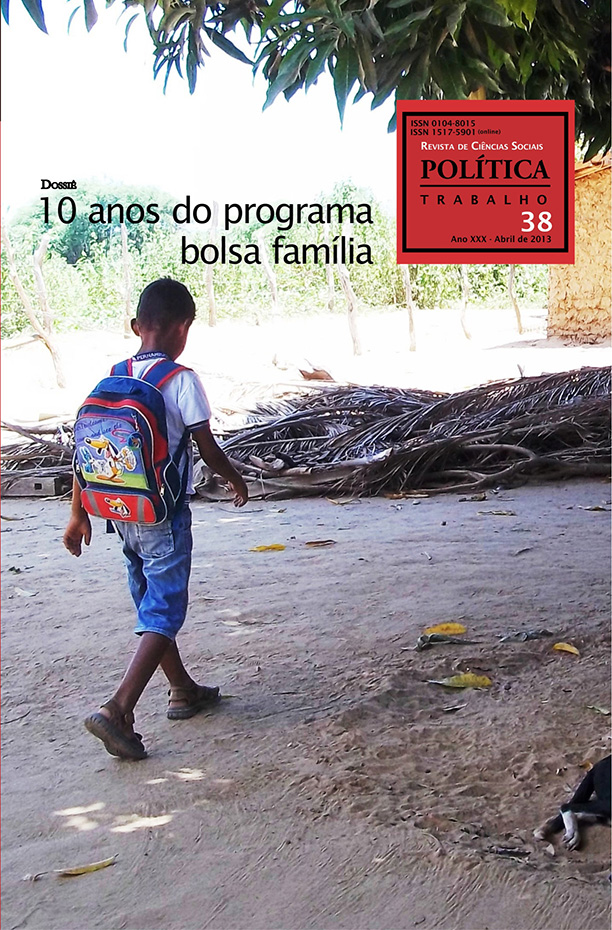Liberdade, dinheiro e autonomia. O caso da Bolsa Família
Resumo
O presente artigo é parte de uma pesquisa mais ampla que teve como um dos seus principais objetivos avaliar as possíveis mudanças morais e políticas ocorridas nas mulheres beneficiárias do Programa Bolsa Família. A pesquisa se realizou durante cinco anos desde 2006 a 2011. Para fazê-la recorremos às entrevistas abertas a fim de ouvi-las mais demoradamente e, preferencialmente, mais de uma vez. Tínhamos um roteiro de questões que encaminhavam a entrevista para o sentido geral da pesquisa. Tentamos captar mudanças em suas vidas nos sentidos mencionados acima. Escolhemos certos espaços geográficos do país, aqueles tradicionalmente mais abandonados pelo Estado Nacional, portanto carentes de serviços púbicos como: escolas, hospitais, estradas, centros de reunião. Desta forma, a escolha se deu por certas regiões do sertão de Alagoas, e certas partes de seu litoral. Estivemos em varias cidades do Vale do Jequitinhonha, interior do Piauí, e do Maranhão, bem como certos bairros periféricos de São Luís e Recife. As vozes e os sentimentos destas mulheres devem ser ouvidos atentamente. Esse modo de captar seus sentimentos e opiniões não é tangível em pesquisas quantitativas. Razão maior da escolha da entrevista aberta para apreendermos melhor alguns elementos das subjetividades das entrevistadas e, assim, tentar avaliar a magnitude das mudanças ocorridas em suas vidas. Palavras-chave: Bolsa Família, processos de autonomização, cidadania, democracia Abstract This text is part of a broader research project that is scoped to the seizure of certain senses of moral and political changes in poor women resulting of the receiving from family grant. The research carried out for 5 years from 2006 to 2011 took place through interviews with some women and followed some script issues. At this hearing, which as is well known has some dynamism characteristic of human speech. We tried to collect changes in their lives in the sense mentioned above. We chose of search some spaces. It meant basically hear people who live in some of the worst situations of poverty and more inhabit the regions traditionally underserved of minimum public services, already lacking schools, roads, hospitals, cultural centers, meeting spaces. The regions were: parts of the hinterland of Alagoas and the Coastal Zone of the state, Vale do Jequitinhonha (MG), some localities of the inner of Piauí and Maranhão and still some peripheries of the São Luis (MA) and Recife (PE). We use the technique of open interviews. Similar technique requires that listen carefully to the voices of women and to the extent possible feel their opinions and feelings about the magnitude of the changes of its lives. Their voices must be heard, preferably more than once, as well as their feelings and opinions. This dimension is not tangible to other forms of research. Keywords: Bolsa Família, processes of autonomization, citizenship, democracyDownloads
Não há dados estatísticos.
Downloads
Publicado
05.07.2013
Como Citar
Rêgo, W. D. L., & Pinzani, A. (2013). Liberdade, dinheiro e autonomia. O caso da Bolsa Família. Política & Trabalho: Revista De Ciências Sociais, 1(38). Recuperado de https://periodicos.ufpb.br/index.php/politicaetrabalho/article/view/15029
Edição
Seção
Nº 38 - DOSSIÊ 10 ANOS DO PROGRAMA BOLSA FAMILIA






